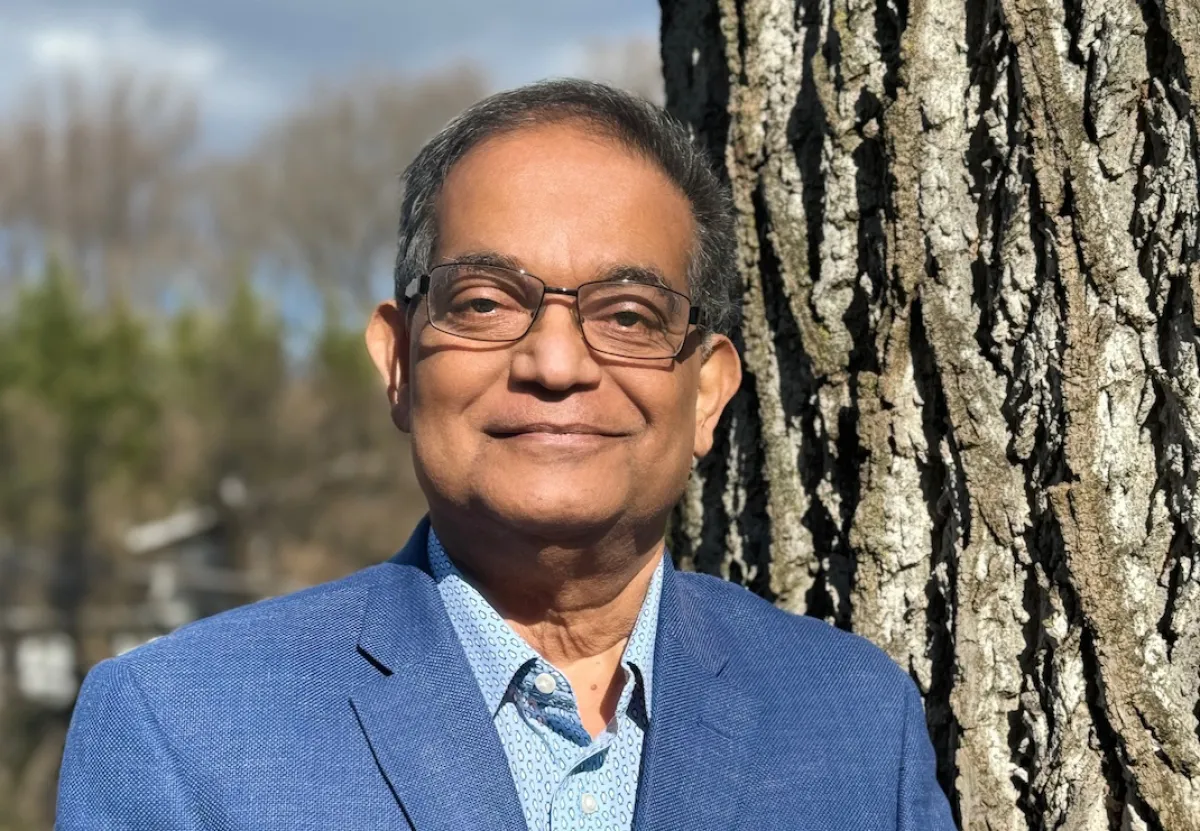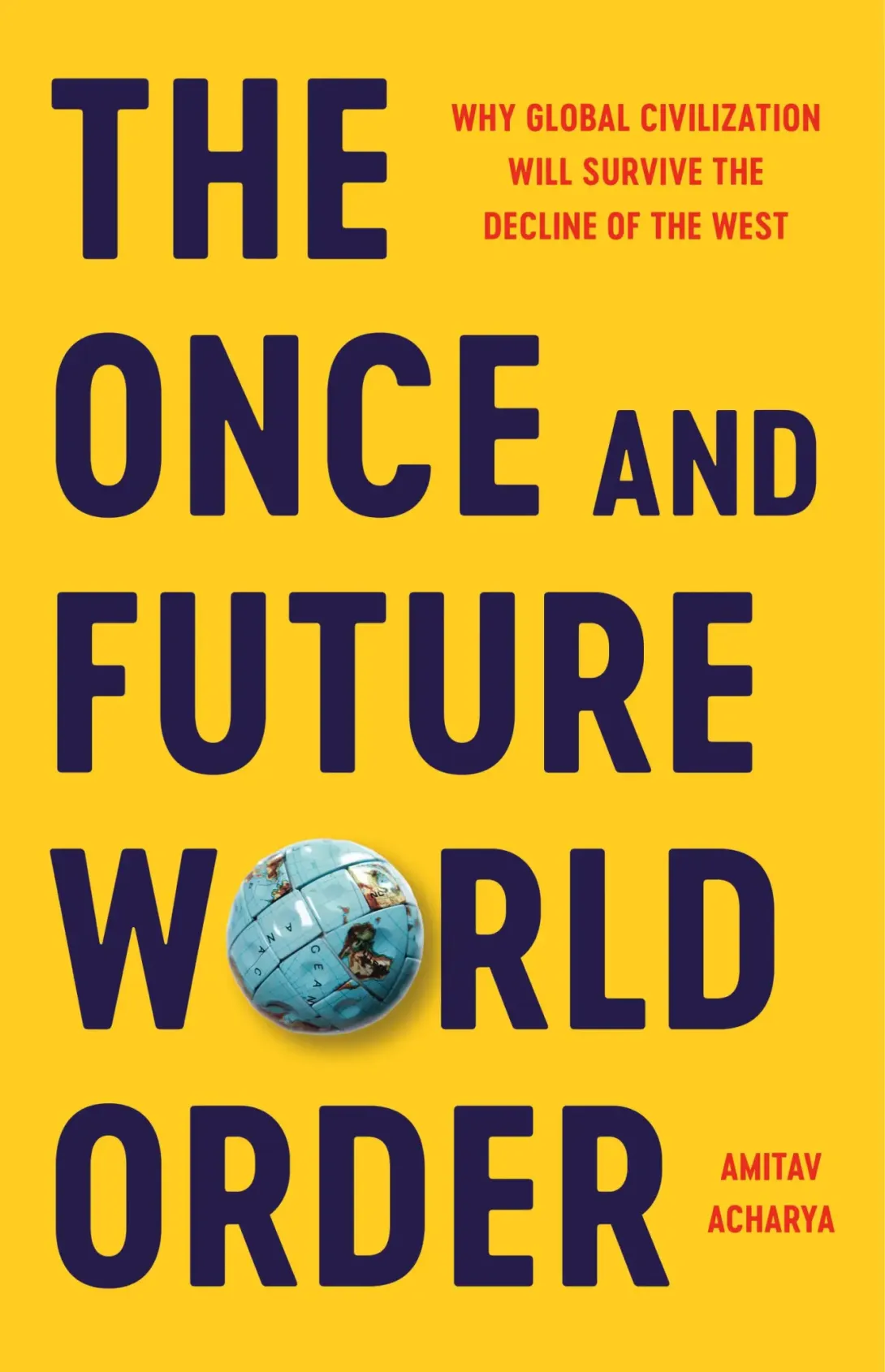The glass is half full

 Basic Books
Basic BooksAmitav Acharya | The Once and Future World Order: Why Global Civilization Will Survive the Decline of the West | Basic Books | 464 pages | 32.50 USD
Indian political scientist Amitav Acharya is a distinguished professor of International Relations at the American University in Washington DC and holds the UNESCO Chair in Traditional Challenges and Governance. He has received numerous awards. In April of this year, he published his book The Once and Future World Order: Why Global Civilization will survive the Decline of the West with Basic Books UK. Back in 2014, he published the book The End of the American World Order.
Amitav Acharya divides the world into "The West" and "The Rest". His major, overarching concern in his new book is to show that the West did not create its culture and its world order from itself, but that virtually all historical civilizations have influenced "Western Civilization". This is a truism for - let's say for unprejudiced (if there is such a thing) and educated people - but it has to be shoved in the face of the "West" again and again, simply because most Europeans and Americans have an inbuilt sense of superiority stemming from the past, in which they were often way ahead of other countries in this world. This has become an integral part of their identity, one which they generally neither can nor want to let go of. But the author also writes for "The Rest", with the message that no one need belittle themselves in front of the "West"; everyone has enough reasons to be proud of the achievements of their civilization. I wholeheartedly agree with him on this point.
Amitav Acharya emphasises that when reading the book, one must keep in mind his definition of world order. It is not about the whole world, but rather about civilizations that have ruled lesser or larger parts of the world. Thus, the Roman Empire is just as much a world order as ancient India, China or the Mali Empire under Mansa Musa in 14th century West Africa, to name just a few examples.
His foray through the history of world orders begins in ancient Sumer, Babylonia and Egypt. From this starting point, he works his way through all the major players in world history on all continents right up to the present day. For someone who is already familiar with these exciting historical topics, his overview basically brings nothing new, but his obviously detailed knowledge is impressive. Furthermore, the concentrated overview is great value in itself. I was somewhat surprised that Amitav Acharya did not mention that the seven-day week and the division of time into 24 daily hours with one hour of 60 minutes and one minute of 60 seconds were developed by the Babylonians on the basis of Sumerian knowledge.
In every world order he discusses, he is concerned with demonstrating which elements of his world order the "West" has adopted from others, or which other civilizations had developed long before the West. There is no reason for the West to be arrogant towards "the rest". It is always a matter of making clear to "The West" that it should be ashamed of its sense of superiority and the brutal methods of its conquests and that "The Rest" is right to defend itself against "The West" and, long-term, could well take over the leadership of the world again. This is a point where, as a German and a European, I cannot avoid criticism.
I am in complete agreement with the rise of "The Rest". Personally, I had the good fortune to write an essay in the Münchner Abendzeitung newspaper in January 2002 on my assessment of the attacks on the World Trade Center in the USA. The title of my essay was "The end of the American century". So I am completely in line with Amitav Acharya. What bothered me while reading it was that I kept getting the feeling that I should personally apologize and thank the other civilizations. For example, to the Indians who invented the zero, which I personally have considered one of the greatest achievements in human history for decades. What bothers me is that the achievements of the "West" are repeatedly reduced to one thing: brute force, predatory colonisation, racism and injustice. And this despite the fact that the author leaves no doubt that all civilizations embody both compassion and cruelty. Humans can be not only good, but also abysmally evil.
I would have liked the author to talk about the achievements of Western civilization, as he does with all other civilizations. They are hardly mentioned at all. In the Renaissance, when Europe rediscovered its Roman-Greek heritage from the 14th century onwards, it was said "We are dwarves, but we stand on the shoulders of giants". The same is true of our world today. It was the Europeans who turned the earth into a sphere for everyone and placed the sun central to the planetary system. It was Europeans who developed the scientific civilization that permeates every culture in the world today. And it was the Europeans who laid the foundation for increasing human life expectancy with their science. Without the worldwide spread of American crops, without the development of modern fertilization (the synthesis of ammonia) and scientific medicine, the number of people on this planet today would most likely be far less than half.
In the last chapter, Amitav Acharya looks cautiously into the future. He addresses the fear of Americans and Europeans, who are well aware of their relative decline and are therefore afraid. He calls on the "West" to recognise the facts, to be more humble and to finally shed its arrogance. There is nothing to add to this. The author firmly believes that we have every chance of building a better, fairer world order. His optimism is very welcome. This time, in my opinion, it should ideally be a world order for all of humanity. Even if it doesn't look like it at the moment, we need it to have a chance of overcoming global challenges such as climate change or the development of artificial intelligence. The glass is half full. We should all take this attitude to heart. "The West" as well as "The Rest".



